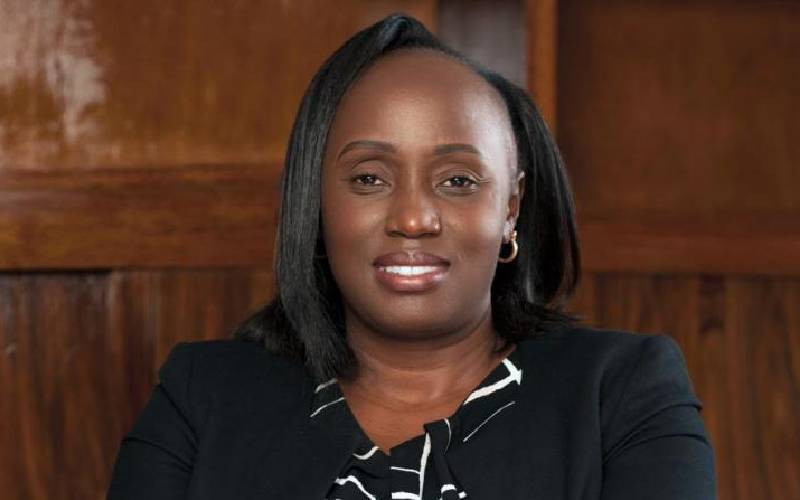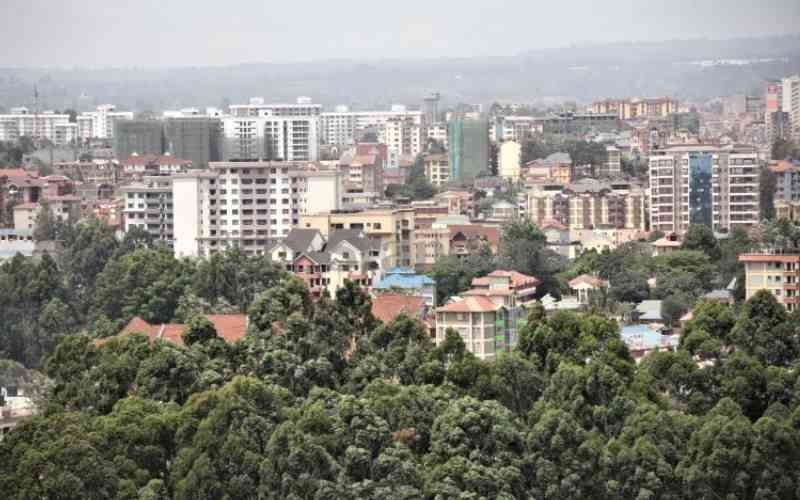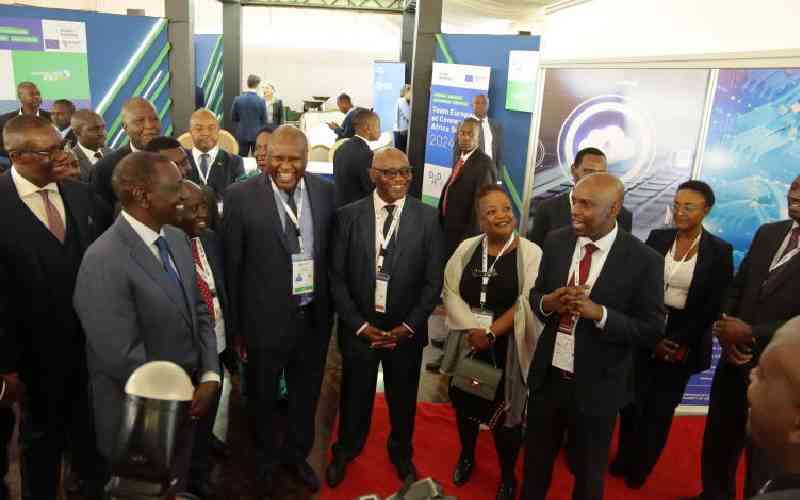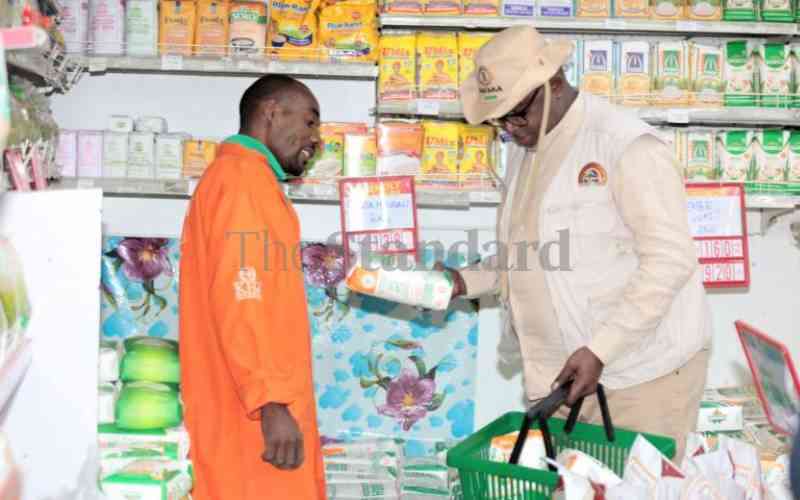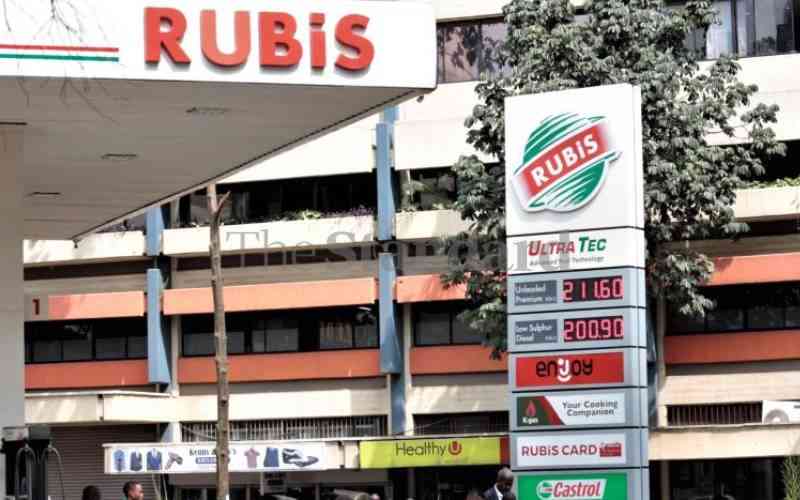
Investors at the Nairobi Securities Exchange lost Sh250 billion in paper wealth last year as prices of most stocks fell sharply. In the year punctuated by volatile Kenyan currency, rising inflation and surging interest rates, 48 of the 64 listed stocks shed value, wiping out an equivalent of nearly a quarter of what the Government targets to raise from taxes to fund the 2015-16 Budget.
The losses have now wiped out more than half of the value of at least a dozen companies listed on the NSE. The worst hit is UK-based Atlas Development, whose stock shed 82.57 per cent last year, cutting its value from Sh909.4 million from Sh5.2 billion in 2014. Others are Housing Finance, Longhorn Publishers, Athi River Mining, Britam, Pan Africa Insurance Holdings and Trans-Century Ltd.
The performance is the worst since 2011, when the Kenyan stock market was ranked worst in Africa. The number of companies that recorded a drop in share prices doubled compared to 2014 which had 24. Also, it is last year that 16 companies issued profit warnings that their full-year profits would drop by a quarter, compared to 2014’s eleven.
The NSE End of year Equity Statistics shows that market capitalisation shrank closing the year at Sh2.049 trillion compared to Sh2.3 trillion in 2014. Investors who had put their wealth in the top 20 companies did not escape the impact of the bear run. Compared to 2014, the benchmark NSE 20 Share Index shed off 20.97 per cent to settle at 4040.75. The broader All Share Index (NASI) gained 9.5 points to close the year at 145.70.
In terms of market capitalisation, which is the market value of all outstanding shares, only four of the top 20 companies managed to grow their average share prices. Sasini, Bamburi Cement, Kenolkobil and Safaricom survived the dip.
Helped by the additional 16 per cent shares it floated on the bourse, Safaricom grew its market value from Sh536 million to Sh653 billion. Its share price also grew by 16.01 per cent. The telecom firm was once again last year’s biggest mover.
So huge was its growth in value of shares at the NSE that single-handedly, Safaricom managed to pull the capitalisation of the top 20 firms to Sh1.70 trillion. In 2014, the market capitalisation of the top twenty companies was Sh1.4 trillion.
Bamburi Cement grew its value to Sh63 billion from Sh50.4 billion last year even as other four listed players in the construction and allied segment lost their footing. Its rival, ARM Cement lost more than half of its value to Sh20.6 billion from Sh42.59 billion. This means that a shareholder in the cement firm has lost Sh51.45 for every Sh100 worth of shares in the company.
Automobiles
The cement firm, which is controlled by Paunrana family, Standard Chartered and British American Tobacco were the three companies in the top 20 stocks which had also issued profit warnings. By close of the year’s trading, Standard Chartered Bank had lost about 42 per cent of its market value.
Kenya Commercial Bank lost about 22 per cent while Equity shed 18.5 per cent of their market capitalisation. The two lenders may be among the most sought after shares this year since speculations about the stocks rebounding may be high. Of the other 13 companies outside NSE 20 that also issued profit warnings, only Uchumi’s share proved defiant. The supermarket’s share price grew by 8.96 per cent.
In terms of market capitalisation, the value of its outstanding shares also improved by 49 per cent to hit Sh3.9 billion. British American Tobacco and Crown Paints joined Uchumi in growing their value.
Overall, it was only the agricultural segment that managed to grow its capitalisation. Five of its seven stocks made it to the 2015 top gainers and therefore its growth in capitalisation from 2014’s figure of Sh13 billion to Sh18 billion last year was no surprise.
The de-listing of CMC holdings in February last year saw the values of outstanding shares of Automoblies and Accessories drop sharply from Sh11 billion to just Sh2.8 billion.
The motor dealer delisted following the takeover by subsidiary of the United Arab Emirates’ largest operating conglomerate, the Al Futtaim Group. It had closed 2014 with market capitalisation of Sh7.8 billion.
 The Standard Group Plc is a multi-media organization with investments in media
platforms spanning newspaper print operations, television, radio broadcasting,
digital and online services. The Standard Group is recognized as a leading
multi-media house in Kenya with a key influence in matters of national and
international interest.
The Standard Group Plc is a multi-media organization with investments in media
platforms spanning newspaper print operations, television, radio broadcasting,
digital and online services. The Standard Group is recognized as a leading
multi-media house in Kenya with a key influence in matters of national and
international interest.
 The Standard Group Plc is a multi-media organization with investments in media
platforms spanning newspaper print operations, television, radio broadcasting,
digital and online services. The Standard Group is recognized as a leading
multi-media house in Kenya with a key influence in matters of national and
international interest.
The Standard Group Plc is a multi-media organization with investments in media
platforms spanning newspaper print operations, television, radio broadcasting,
digital and online services. The Standard Group is recognized as a leading
multi-media house in Kenya with a key influence in matters of national and
international interest.



